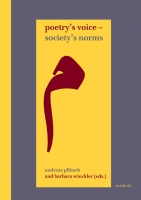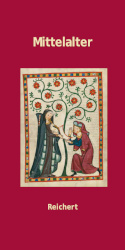Search
Editors: Pflitsch, Andreas; Winckler, Barbara
Poetry’s Voice – Society’s Norms
Forms of Interaction between Middle Eastern Writers and their Societies
2006
17.0 x 24.0 cm, 306 p., hardback
ISBN: 9783895005183
17.0 x 24.0 cm, 306 p., hardback
68,00 €
ISBN: 9783895005183
Short Description
Literary works are much more than mere illustrations of societal conditions. Literature is the setting in which society discusses itself. In this volume, international scholars of Literary Studies as well as specialists in Arabic, Hebrew, Persian and Turkish Studies explore the dimensions and ways of how writers, from the classical period to modernity, tackle the values of their societies.Description
Literary works are much more than mere illustrations of societal conditions. Literature is the setting in which society discusses itself. In this volume, international scholars of Literary Studies as well as specialists in Arabic, Hebrew, Persian and Turkish Studies explore the dimensions and ways of how writers, from the classical period to modernity, tackled the values of their societies.From the contents: Religious Norms Advocating / Domesticating Literary Freedom - Literary Norms and the Travelling of Genres - Linguistic Norms: Writing in the ‘Stepmother Tongue’ - Gender Norms, Inverted and Subverted - Societal Norms I: The Poet Involved - Societal Norms II: Imagining Communities, Debating the Collective




 Preface
Preface

 Neuerscheinungen 2023/2024
Neuerscheinungen 2023/2024
 Gesamtverzeichnis 2023/2024
Gesamtverzeichnis 2023/2024
 Katalog Oriental Studies & Linguistics
Katalog Oriental Studies & Linguistics
 Mittelalter
Mittelalter
 Deutsche Inschriften
Deutsche Inschriften
 Musiktherapie
Musiktherapie
 Literaturen im Kontext
Literaturen im Kontext